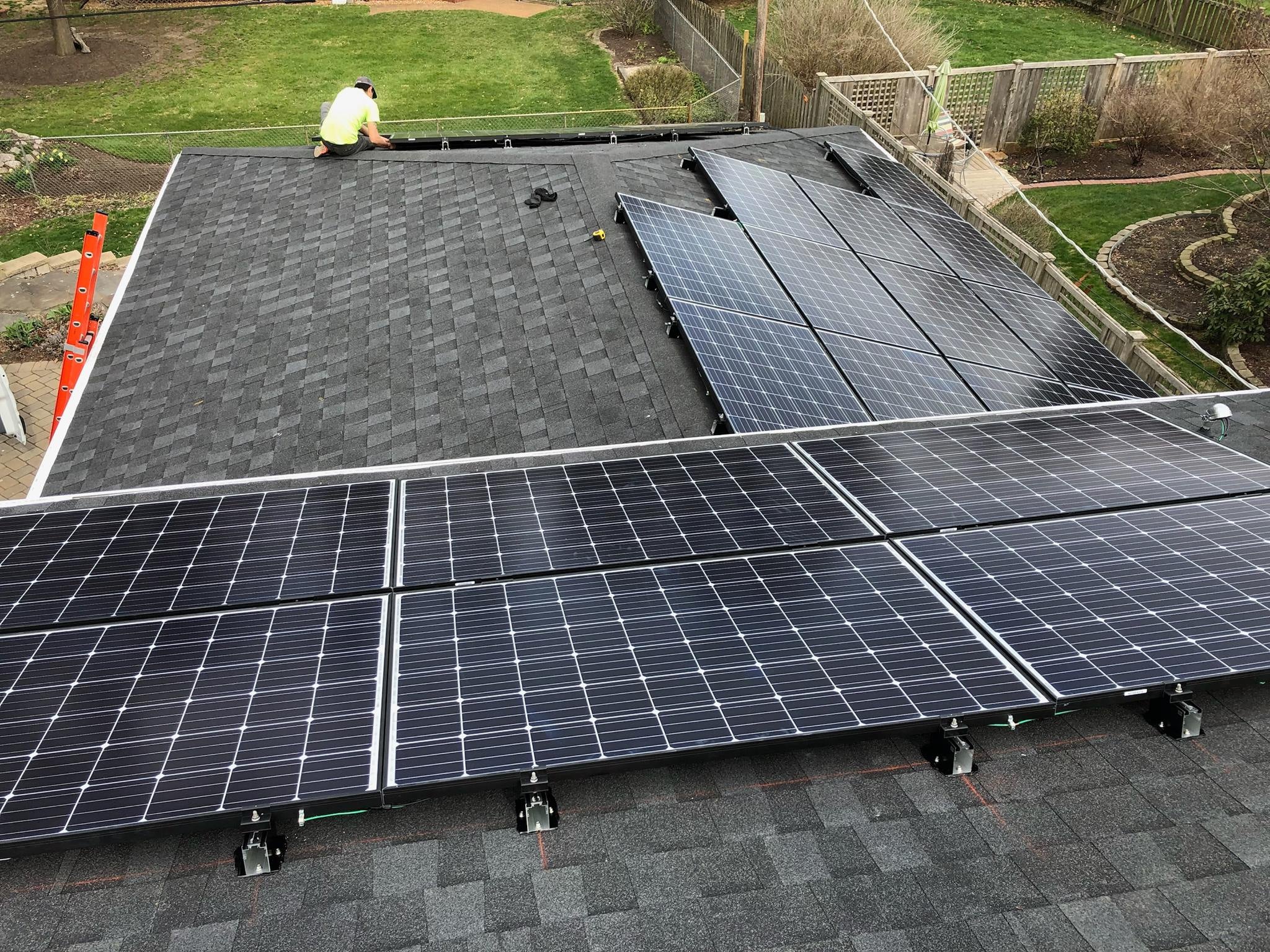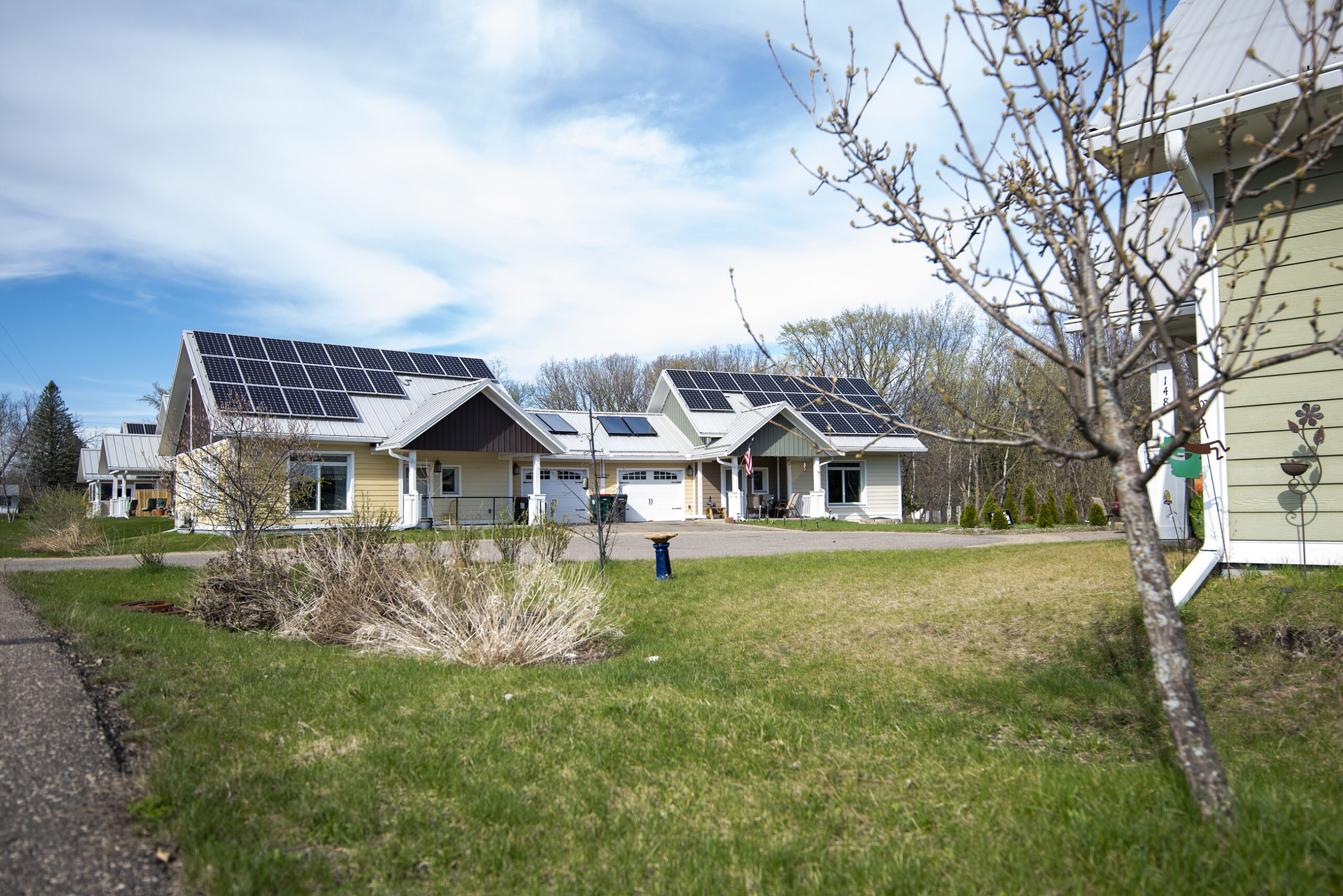Since at least January, many of Sun Badger Solar’s customers have been in the dark about the status of incomplete residential solar projects for which they paid tens of thousands of dollars.
In late December, the company said it ran into financing hurdles, creating a shortfall that caused it to miss the Dec. 23 payroll. Former employees, however, say the company was struggling beforehand. In January, Sun Badger furloughed employees and paused solar projects.
The Wisconsin Department of Agriculture, Trade and Consumer Protection, or DATCP, is actively reviewing the company’s business activities, said Michael Domke, director of DATCP’s Bureau of Consumer Protection.
Stay informed on the latest news
Sign up for WPR’s email newsletter.
The situation with Sun Badger Solar has left many of its customers wondering, “What are our next steps?” One customer who paid a $35,000 deposit to Sun Badger reached out to Wisconsin Public Radio’s WHYsconsin with that very question.
The Dane County homeowner signed a contract in August. They were told their project was in the “bureaucratic phase,” but then communication stopped in January.
If a customer has made a payment on a project and no work has been done, Domke said they should notify the company that they want to cancel their contract. That triggers a requirement for the business to return funds that haven’t been used, or provide materials to the customer or provide an explanation of how the money was spent.
But Domke said canceling a contract won’t solve all the potential problems a customer might face.
“If we had contracted with a solar installer to do things and all of a sudden they show up and say, ‘We can’t finish it but here’s three pallets full of solar panels,’ that doesn’t do us a lot of good if we don’t know how to put them on,” Domke said.
3 independent paths forward
Beyond trying to cancel a contract, Domke described three independent paths forward for customers.
The first option, he said, is to file a consumer complaint with DATCP.
That enables the department to review what’s going on and try to mediate a solution between the business and the consumer.
“We have a regulatory authority over some of these areas,” he said. “With solar installation, really the home improvement aspect of it is where we have authority. And so we can exercise that (authority) to try and motivate that business to understand what the responsibilities are (under contract).”
But he added that the department doesn’t have the authority to force any business into any resolution.
DATCP’s Consumer Protection Hotline can be contacted during business hours by phone at 800-422-7128 or by email at DATCPHotline@wi.gov. Officials said anyone can call to ask questions, seek advice or inquire about specific businesses — including whether any complaints have been filed with DATCP.
Customers can also contact local law enforcement to file a theft-by-contractor complaint, Domke said.
“Theft by contractor, that’s a little bit outside our purview,” he said. “Law enforcement could pursue that potentially for either enforcement or as an opportunity to try and remedy the situation.”
The third option is to file a lawsuit against the company and to seek relief through the court system, Domke said.
What happens if DATCP can’t find a satisfactory resolution to a complaint?
When DATCP can’t find a resolution between the business and the consumer and there’s disputed facts between both sides, Domke said the department doesn’t have authority to force a business into a resolution.
“We just try to make sure both sides are as educated as they can be, and then provide maybe some assistance in explaining what the regulations require,” he said.
However, if it gets to the point where DATCP believes a business may have broken the law, the department can issue a non-compliance letter to the business, Domke said.
“There are times that — if we see a pattern from a particular business, (and) we’re given a few complaints — we may look deeper into that business’ activities, and how they’re doing things more holistically,” he said.
What’s DATCP’s process for reviewing a company’s business activities?
First, the department tries to get an understanding of what’s happening by reviewing complaints or through conversations with the business, Domke said.
DATCP then works to gather additional information from the business, other consumers or through independent research.
“All of that kind of cultivates into whether or not we identified specific violations or not,” Domke said. “And if there are (violations), then we may potentially look at further enforcement action.”
If a company has violated the law, DATCP can refer the case to a local district attorney or the Wisconsin Department of Justice, he said.
What to look for when selecting a solar company
Domke recommends consumers research whether solar is the best option for them. That means looking at the roof to ensure it won’t need to be replaced after solar installation and identifying if a home’s location is going to get enough sunlight.
Once a customer has determined that solar is right for them, he said the next step is to begin researching companies and get to know the company they plan to contract.
“This is almost universal for anyone when you’re going to do a home improvement contract,” Domke said. “But there are a couple unique nuances for solar, particularly because that brings a different expertise, and you want to make sure that your contractor has that expertise.”
He recommends getting three estimates in writing and bringing contractors to the location of the proposed solar installation to inspect the site. Domke added that it’s always a good idea to ask for previous customers who would be able to share their experiences with a company.
“We see so many online reviews, but we can’t really tell whose maybe behind those reviews. But if you call a real person, and you can actually see that the project was done, it adds a little bit more comfort and validation to what you’re doing,” he said.
The last thing a customer should do is make sure they fully understand the contract, and understand contractors responsibilities and the homeowner’s responsibilities, Domke said.
“Are they going to get the permits? Or are you supposed to get the permits? When is it going to be done? How much are they gonna have to pay for the total project? Is there an installment plan? What is the interest rate? All these things are really going to have to be those known upfront before you invest $35,000,” he said.
A few other organizations that are heavily involved in solar energy and can provide more resources to consumers include Renew Wisconsin, Midwest Renewable Energy Association and the North American Board of Certified Energy Practitioners.
Editor’s note: Sun Badger Solar has been a Wisconsin Public Radio business sponsor.
This story was inspired by a question shared with WHYsconsin. Submit your question below or at wpr.org/WHYsconsin and we might answer it.





